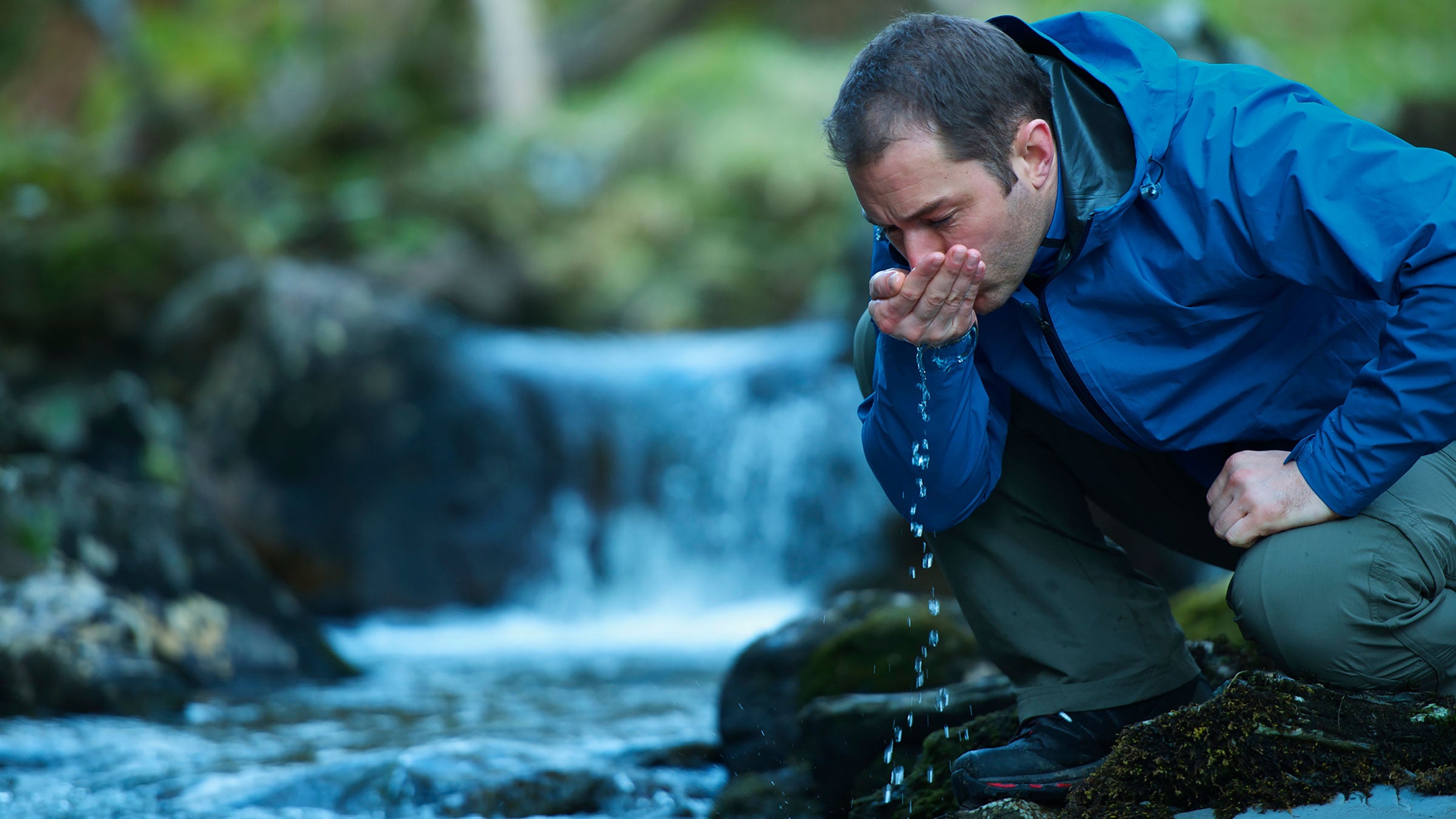Hiking isn’t just a hobby—it’s a lifestyle. tackles the hiking life—and all of the joys, problems, arguments, and weird quirks that go along with it—in her column.
When I look at how I prepare for a trip now versus when I started backpacking, the difference is stark. I wrote with columns and categories before my first backpacking trip, laying out my options for layers, staring at two down jackets like they were going to stand up on their own and tell me which one to take. I brought the Sawyer cleaning kit for an overnight trip, plus multiple options for hiking clothing in case I wanted to change during the two days. I prepared enough food and snacks to feed a family, and brought two water bottles plus a hydration reservoir. It was…a lot.
Yes, I was an over-packer, but this was about more than that. Back then, I tried to make up for my lack of experience with extra planning and prep. I planned my , reserving hostels and motel rooms far in advance of reaching the town. I researched road crossings and local shuttle options. I sent to towns that had plenty of places to buy groceries. I felt new and vulnerable, and knowing what to expect when I got to a town helped ease my anxiety.
I’m sure someone on the internet will read that and say “OK, you’re just describing adequate preparation and responsible backpacking.” That’s fair. But in my experience, it’s also indicative of a newer backpacker. The less you leave up to chance, the less intimidating the experience is.
These days, I have my system fairly dialed. I don’t bring a filter plunger during a three-day trip, and I’ve worn enough down jackets to know which one serves me best for the forecasted conditions. But now, the mistakes I make are entirely different.
The more you’ve done a specific activity, the less mysterious it becomes. You know what you can do without, and unless you’re tackling something unusual, you’re usually comfortable bringing less. But then you reach a tipping point: You’ve gotten so used to prepping for your weekend hike that you go on autopilot and start to overlook things. It’s something I’ve learned the hard way, on trips both short and long.
I was pretty casual about planning my town stops on the . I didn’t take any zeroes, but I did occasionally want to stay in town to shower and wash my hiking clothes. As I headed into Twin Lakes, an overnight stay felt necessary. I’d been caught in freezing thunderstorms for days, and I was ready for a few good town meals and a hot shower. But when I got to the tiny town, every room was booked. Everything. I watched the hikers around me disperse to their hostel bunks and motel rooms or meet their rides to another town, and I dragged myself to an empty church where I sat in a pew and charged my phone, feeling wretched and regretting my lack of planning.
I huddled in the bed of a pickup truck bouncing back to the trail in another storm, thinking about my first backpacking trips where I planned my mileage and reserved housing in advance. For the most part, experience had shown me that I could show up and figure it out on the fly. This time, it had come back to bite me.
I’ve made other mistakes like that. Before I left for the this spring, I got talked into upgrading my phone charger and battery pack. I swapped my standard iPhone cable for a USB-C one that supposedly charged my phone faster, and bought an upgraded external battery.
As I packed, I gave the battery pack a cursory glance to make sure it had a USB-C port, then hopped a plane. A few days into the trail—about 20 miles from my first town—I stopped at a mud puddle to fill my water bottles and charge my phone, which was hovering around ten percent. I plugged the phone cord into the USB-C port. Nothing happened. I pulled it out, blew away imaginary dust, wiped both ends on my sweaty bandana, then tried again. Still nothing. I pushed the power button on the charger, and all four battery indicator lights lit up. I squinted at the fine print next to the USB-C port. Input only. My phone clicked down to 9 percent.
If I’d been more thorough, I would have actually checked the charging capabilities instead of seeing the port and assuming it worked both ways. Even though I was getting to town that day to buy a new charger, I am for navigation, so I wasn’t thrilled.
A few days later, around the 100-mile mark, I was sitting at a water source with several hikers when one of them groaned and tossed one of two identical water bottles onto the ground.
“I just drank from my dirty water” he moaned, dropping his head between his knees, muttering about not being careful enough. The water source was also a source for cows, and it was not something I’d have wanted to drink untreated.
After trying to convince him that he *probably* wouldn’t get Giardia, we talked about how easy it was to become spacey and complacent in familiar territory. The terrain was reasonable, the conditions were good, and we were in the comfortable space of a long trail with easy resupply logistics and an app that told us exactly where the next water was. It was too easy to take the details for granted.
This is how slip-ups happen. When the consequences of carelessness are clearly deadly, we’re careful: We know to never let our guard down with our climbing knots and anchor systems, and to always carry a repair kit on long bike rides, no matter how many rides we’ve done. On the other hand, I can’t even count the number of times I’ve gone on a run or day hike without adequate water or food because “I’ve gone longer and it was fine.”
Like the routines and rituals of daily life, someone who backpacks a lot might get so accustomed to the systems that the actions become automatic. But unlike life at home, there’s not much of a backup plan if something goes wrong. I couldn’t walk over to my junk drawer and find a different cord. If we were at home, my AZT buddy wouldn’t have accidentally chugged from a bottle of dirty water in the first place.
Now that I’ve started seeing this pattern, I’ve also noticed the beginning of a reversal. I don’t foresee myself reverting back to overpacking and mapping mileage, but as I pack for my next trip to the desert in a few days, I’ve checked all of the battery indicators on my headlamp, external battery, and headphones. I ran water through my filter to make sure it wasn’t gunked up, and I double-checked the cords to charge my electronics. I reviewed the forecast to make sure I had the right sleeping bag and layers, and I downloaded maps ahead of time so I don’t get caught off guard if I lose service faster than anticipated.All of these precautions might seem like no-brainers, but after getting too relaxed in the planning and on-trail life, it’s never a bad idea to check back in with myself and make sure I’m not developing bad habits.


